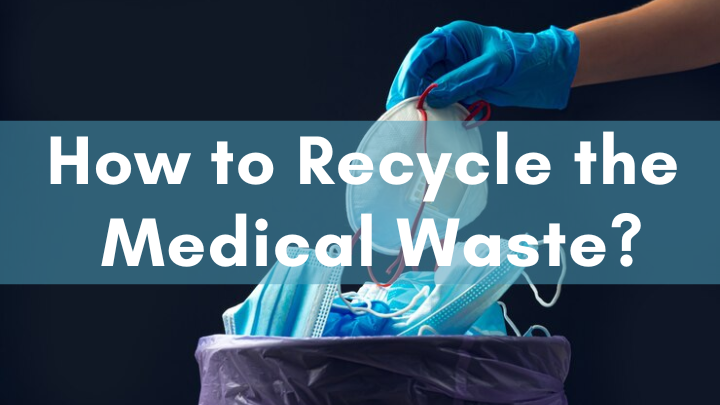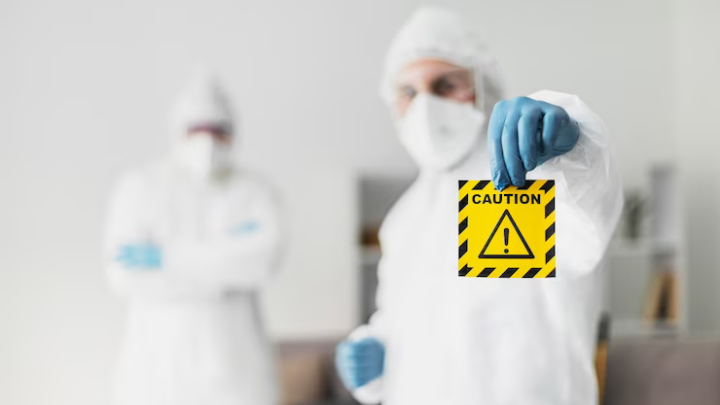
Recycling is the process of converting waste materials into new materials and objects. It is an alternative to conventional waste disposal that can save material and help lower greenhouse gas emissions. The medical sector is a major producer of waste. In the UK, hospitals and other medical facilities generate an estimated 3.6 million tons of waste each year. This waste includes everything from medical equipment and supplies to food scraps and hazardous materials. In this blog article, we will discuss regarding how to recycle the medical waste.
If you currently own your own practice or you are the manager of one then you need to start doing more when it comes to the environment. Every business including your own talks about making a difference and yet many businesses throughout the UK don’t put real measures in place that will make a significant change.
You always hear the mantra ‘reduce, reuse, recycle’ and we are just not doing enough. As medical practitioners, we are taught to do no harm and so by reducing our overall waste we can reduce the harmful effects that it is having on our planet and it actually saves us a lot of money as well.
Recycling can help to reduce the amount of waste produced by the medical sector. For example, paper can be recycled into new paper products, plastic can be recycled into new plastic products, and metal can be recycled into new metal products. Recycling can also help to reduce the amount of greenhouse gas emissions generated by the medical sector.
If you don’t currently have anything in place when it comes to the disposal of equipment then it might be an idea to suggest that you start to recycle medical equipment today. Your practice needs to start adopting best practices when it comes to a more sustainable workplace and reducing your overall waste. It is so important to make sure that recycling happens within the medical sector in the United Kingdom and the following are just some of the actions that you can start today.
1. Better waste disposal
As per the latest report of Medic News, the average hospital generates about 30 pounds of waste per patient per day. This waste can contain harmful chemicals and pathogens that can pose a serious threat to human health and the environment. In the medical industry, PPE and single-use plastics are used every single day. But, we are not disposing these things in the correct manner. We must start implementing the health care sessions regarding the recycle of medical waste through an efficient manner.
For example, plastic medical waste can be recycled into new products, such as plastic bags or bottles. Paper medical waste can be recycled into new paper products, such as toilet paper or paper towels. And metal medical waste can be recycled into new metal products, such as surgical instruments or medical equipment.
Doing so will not leave an increased carbon footprint and it doesn’t cost your business more money when you call out the removal company. Recycling can help to reduce greenhouse gas emissions by up to 20%.
2. Reducing medical packaging
Medical packaging is important to protect the integrity of drugs and medical devices. However, it can also be a major source of waste. On an overall, the medical sector generates an estimated 25 million tons of waste per year. Of that, about 10% is packaging.
Many prescriptions in the UK are renewed monthly on a very regular basis and yet we are still using plastic packaging that is damaging to the environment. This practice needs to stop in order to be able to reduce the carbon footprint that it leaves and you need to start using reusable applicators for example. We need to start using more reusable packaging within our industry.

There are a number of things that can be done to reduce medical packaging waste. One is to use more sustainable materials. For example, some medical packaging is now made from recycled materials or biodegradable plastics. Another is to design packaging that is more efficient. For example, some drug bottles now have a smaller footprint, which means that they use less material.
Despite the challenges of recycle of medical waste, it is an important way to reduce medical packaging waste. By recycling medical packaging, we can help to protect the environment and conserve resources. It is one of the major tip regarding how to recycle the medical waste and save environment.
3. Medical instruments & equipment
There is absolutely no doubt that many of these items are made from steel and this results in a big carbon cost to the environment. It also includes other materials such as pharmaceuticals, plastics, and paper. We need to start using other things rather than single-use items and rather than throwing away medical equipment, it would be a much better idea to recycle it or to donate it to a worthy cause. There are many countries around the world that will be more than happy to have some of your older medical equipment that they could recycle themselves.
There are many different ways to recycle medical waste, and most hospitals and clinics have programs in place to make it easy for patients and staff to participate. We also need to stop using paper when it comes to prescriptions and making orders, and every practice needs to start using a digital ordering system so that we can stop cutting down trees and damaging the environment further.

If we all work together within the medical industry, we can make real changes today and tomorrow for the children of the future.
Conclusion
Recycle of medical waste is an important way to reduce the environmental impact of the medical sector. By recycling, we can help to conserve natural resources, reduce pollution, and save money. This savings could be used to improve patient care or to invest in new technologies.
Recycling medical waste can reduce the amount of waste that goes to landfills and incinerators. This helps to protect the environment and reduce greenhouse gas emissions. It is our way to make a difference for the planet. Recycling in the medical sector is increasing, but there is still a lot of work to be done. If you need more details, please do contact your local hospitals and medical facilities to learn about their recycling programs.
